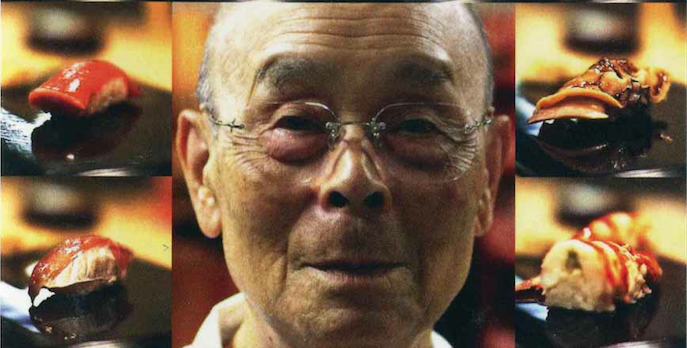Welcome to DU. In a perfect world, tests would be called “tests,” and midterms would be called “midterms.” Alas, we’re still here, mascotless and with midterms every other week. So, to make up for some of the seriously head-throbbing studying, we’ve devised a few of our old favorites, mixed in with some new shows to take the edge off.
This feel-good documentary follows the life of Jiro Ono. At age 85, Ono is considered by many to be the best sushi chef in the world. Additionally, he is the recipient of the prestigious Michelin 3-Star ranking, meaning the quality of his restaurant warrants a trip to Japan solely for his sushi.
After a rough upbringing, Jiro Ono began to work at the young age of 10 (in a sushi restaurant). The rest was history: he began a steady uprising, working his way through the ranks and rarely finding time to return home to see his children.
Jiro Ono’s character is quickly revealed: as a workaholic, perfectionist and perhaps most poignantly, as a father.
He devoted an insane amount of time to sushi, not taking holidays or breaks unless forced to. Jiro mentions that he would awaken from restful slumber, sometimes in the middle of the night, to jot down sushi ideas that occurred to him.
His elder son, Yoshikazu, works alongside him. Takashi, Ono’s younger son, opened a restaurant that mirrors his father’s style.
In the Japanese culture, the elder son takes the place of his father in business ventures. While Takashi lamented the difficulties of opening his own restaurant which fans often call “the same quality sushi as my father’s but at a lower price,” he also mentioned Ono’s constant support and never-tiring work ethic as a motivation. Yoshikazu and Takashi’s presence in the film illustrate an undying respect for their father, a sentiment shared by Ono’s cult-like following.
This documentary is special, as it possesses the ability to make the reader ravenously hungry while simultaneously teary-eyed. The kind of film that’ll make you cry, laugh and think all in one bite.
Blackfish will undoubtedly change the way you think about performance animals, for better or for worse. This documentary is an investigation of the orca whale Tilikum, who has been single-handedly responsible for three trainer deaths since his capture in 1983.
The film goes behind closed doors to expose many shocking elements of SeaWorld performances: the differences in lifespan of captive animals vs. wild, the previously-uninvestigated trainer attacks and the invariably tiny tanks where the whales are held.
Though controversial, Blackfish provides a compelling look that will force viewers to question one of America’s seemingly innocent theme parks. Watch the movie or visit blackfishmovie.com for more information on the film and its mission.
A film for the musically inclined. This documentary tells the story of black background singers: more specifically, the oft-overlooked powerhouses whose unidentified voices provided harmonies countless hits throughout the 1950s onward. By telling their stories, the documentary aims to immortalize performers like Darlene Love, the very first black female background singer.
The record industry in the 40s and 50s was almost exclusively white, including the background singers the trio Love was a founding member of, “The Blossoms,” entered the music scene and changed history forever. The group’s natural rhythm, and vocal ease brought the songs they accompanied to another level.
The film focuses on a series of darker moments such as many of the record company’s lies and exploitation of their voices. But the singers maintained their integrity, and the purity, strength and raw vocal power of these women, shown through several acapella moments, encaptures what it truly means to sing. Cameos from Bruce Springsteen, Phil Spector, Stevie Wonder and Sting (to name a few) make for a musically-rich and fascinating watch.
You can find these three compelling documentaries on Netflix (though sadly, no promise you’ll pass your midterms).











